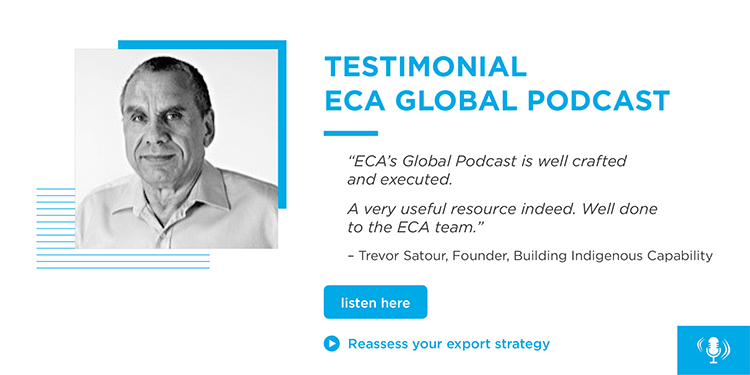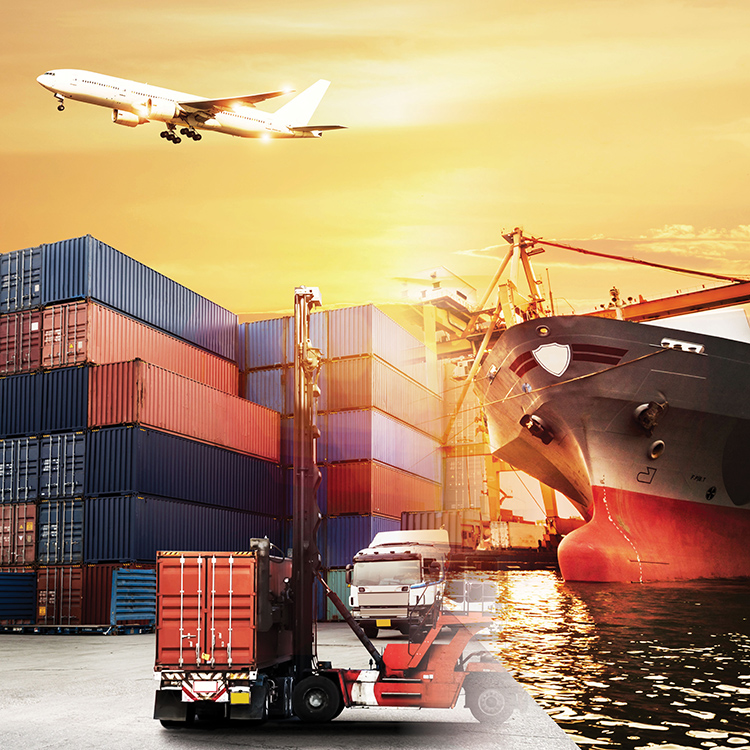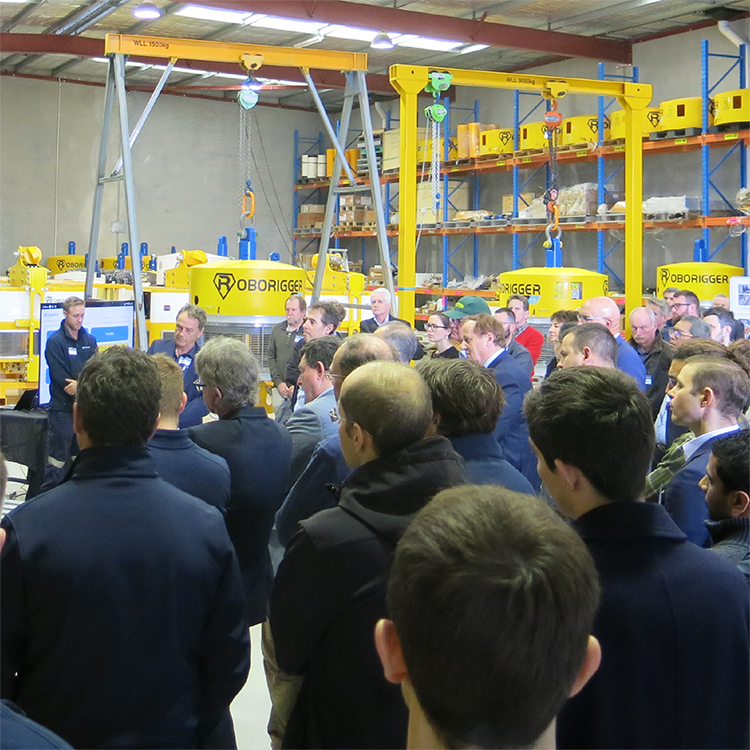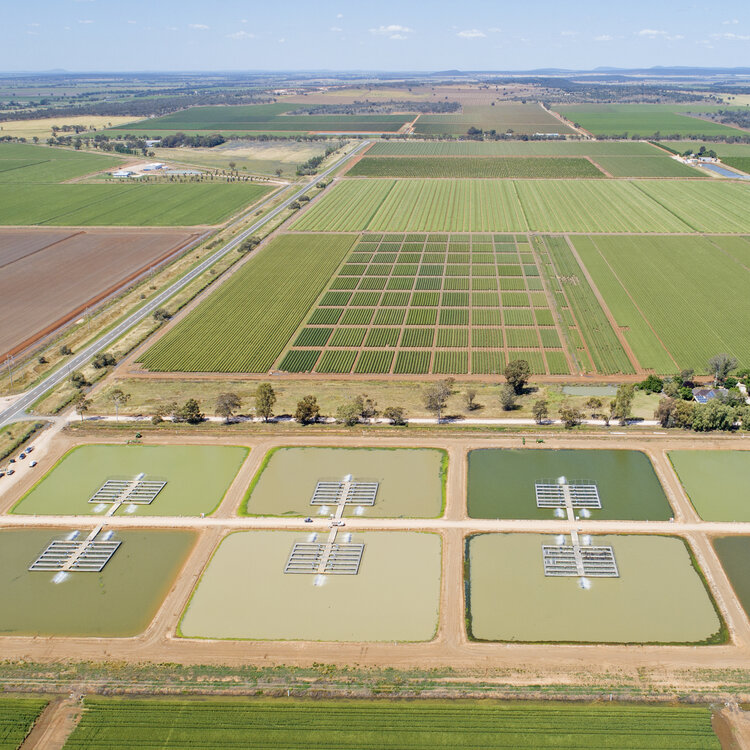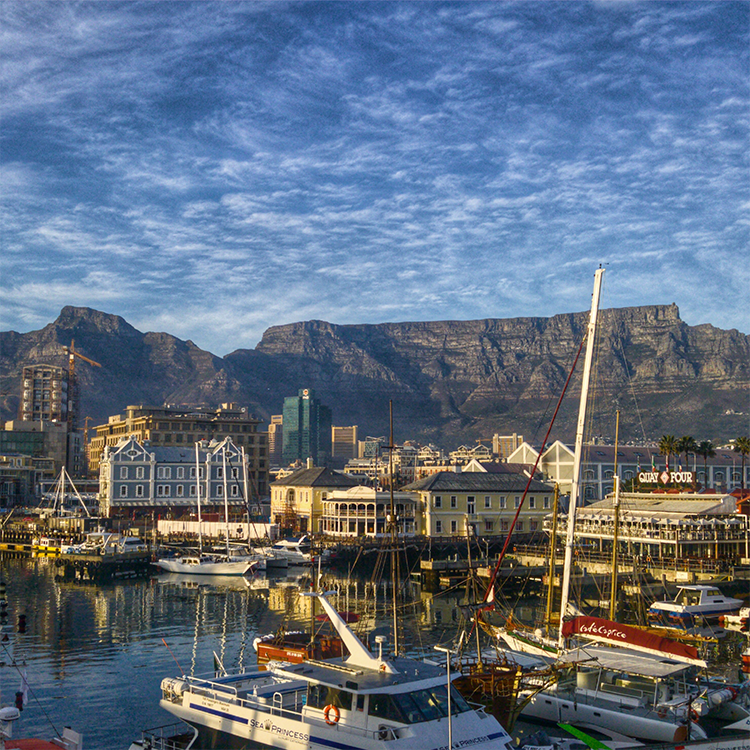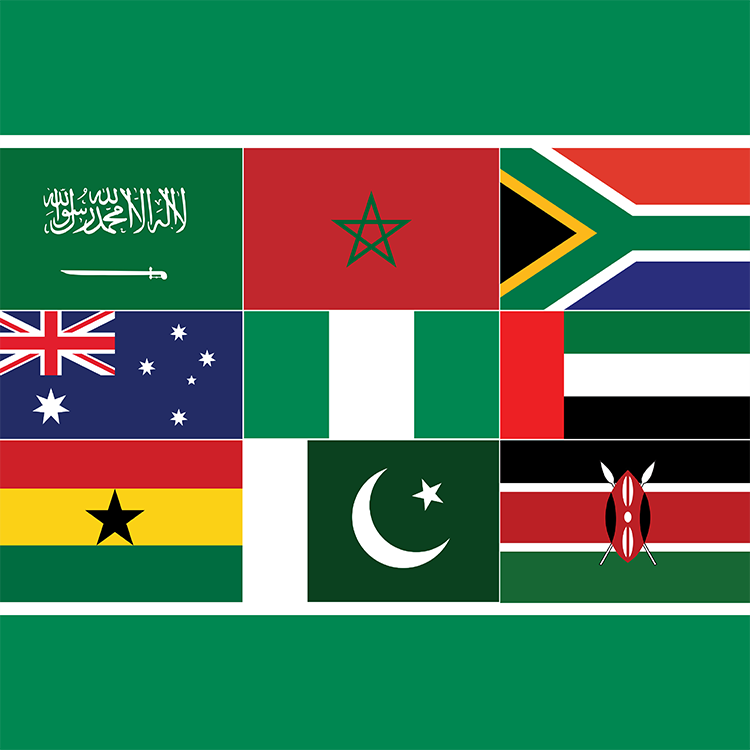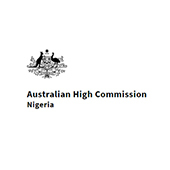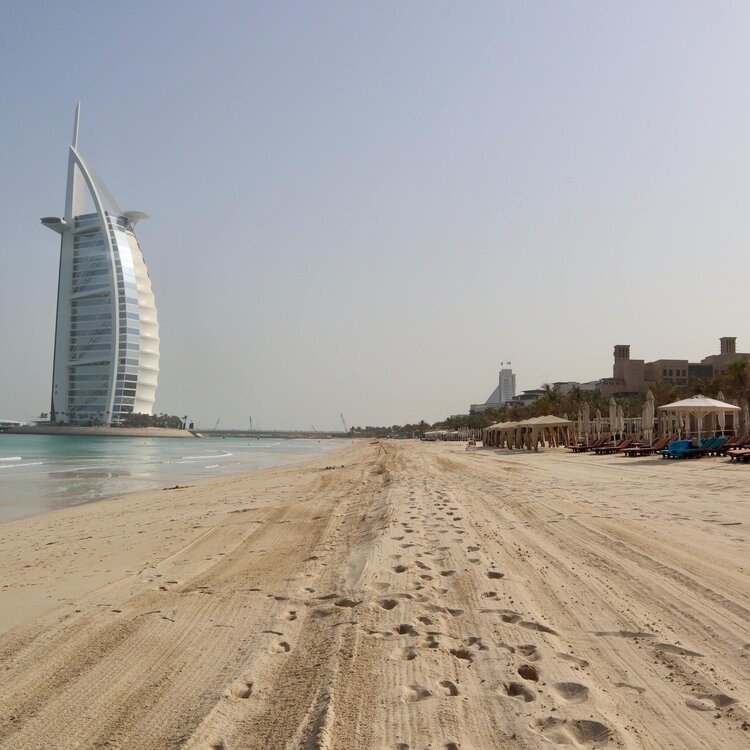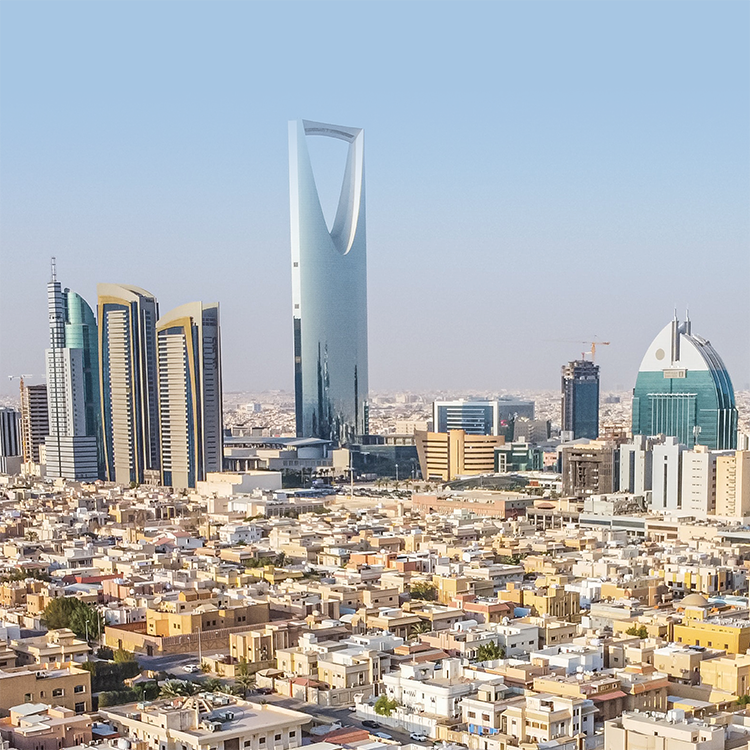Export Council of Australia's Global Podcast
The Export Council of Australia (ECA) has been helping companies grow internationally for over 60 years.
This expansion is supported through skills development, policy advocacy and breaking down barriers to trade.
The aim of this podcast is to share insights from business leaders around the country to help with your business exporting strategies.
The COVID-19 series is about informing and offering solutions to businesses during the current pandemic.
We speak to experts from all sectors and industries about trading regions, reassessing your business, supply chain, marketing and finance strategies.
Our aim is to give practical information and insights on how businesses are navigating their way through COVID -19 pandemic.
Hosts:
- Sarah Demenis, National Business Development Manager, Export Council of Australia
- Shane Styles, National Skills Development Manager, Export Council of Australia
Episodes:
- Episode one: our hosts Sarah and Shane are joined by special guests Chris Warry of PwC and Trena Blair of FD Global Connections, as they give their overview of the current impact of COVID-19 with Australia’s major trading regions, North America and Asia.
- Episode two features special guest Paul Cooper, Owner of Rinstrum and Chairman of the Australian Government’s Advanced Manufacturing Growth Centre and explores how to best review the impact COVID 19 has had on your business. This includes: how your business is placed now, repositioning your business, identifying new opportunities and coming out the other side.
- Episode three features special guest Stephen Stroner, Managing Director, UPS for a review on how the supply chain has been impacted by COVID-19. This episode looks at some of the challenge’s businesses have been facing around supply chain issues, including freight and how they are overcoming them. Stephen gives us some insights on how UPS has responded to the ever-changing nature of COVID-19 and how the business is managing the demands both now and in the coming months.
- Episode four: our hosts Sarah and Shane are joined by special guest, Leila Naja Hibri, CEO of Australian Fashion Council for some insights on businesses current market position. They discussed the changes in marketing strategies during the COVID-19 crisis and the importance of reviewing your sales channels. Leila shares some findings from the AFC COVID-19 survey and the shift to e-commerce and the challenges around manufacturing. They also delved into the new opportunities both now and post COVID-19.
- Episode five: Our hosts Sarah and Shane talk with guests from Export Finance Australia: Greg Caisley, Chief Customer Officer – SME’s, and Nessa McCarthy, Head of Transaction Management – SME’s. They discuss the ways in which businesses’ finances have been impacted during COVID-19, especially around cash-flow and how to mitigate risk. Greg and Nessa share information and insights on the support packages available to businesses at this time.
- Episode six: Join Sarah and Shane for their conversation with Michael Coote, National Manager – Export Development, AUSVEG and ECA members: Dalene Wray, MD, OBE Organic and Heidi Walker, MD, Walker Seafood Australia. Dalene and Heidi share their stories on how they are managing their businesses through COVID. From adjusting their business models to the strategies they are implementing for the recovery. Michael talks on how this disruption has been felt across the potato and vegetable industry, especially around supply chain. While there continues to be daily challenges, they remain positive for the future diversification of the Australia’s Agricultural export market.
- Episode seven: This week we are talking manufacturing with special guests, Garry Beard, Chairman, AH Beard and David Mumford, Sales and Marketing Director, RBK Nutraceuticals. We look at the disruption COVID-19 has had on these businesses and how they’ve adjusted. We discuss their journey over the past few months what strategies they are implementing for the recovery.
- Episode eight: This week is the final episode of the special COVID-19 series. Sarah and Shane welcome special guests, Paul Bloxham, Chief Economist, HSBC and Tamara Orayce, National Manager, Policy and Research, ECA. They explore the road to recovery with the macroeconomic challenges the global economy will face as well as some changes in trade policy. We will also look at some practical steps to best prepare for the opportunities ahead whilst cautiously guarding against further COVID-19 bumps in the road.
Other podcast episodes cover a range of topics including; supply chain, market position, finance and compliance. We drill down into case studies on how sectors and industry are responding with the purpose of giving insights on how to reassess your export strategy and reposition your business now and post COVID-19.
Episodes will be released weekly.
Subscribe today on Apple or Spotify or listen via links above.

